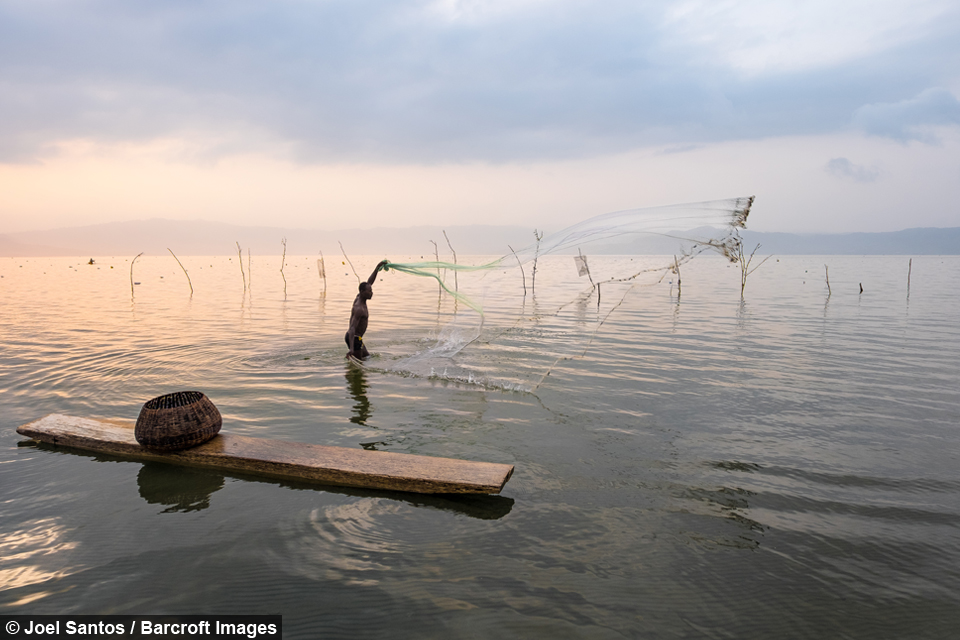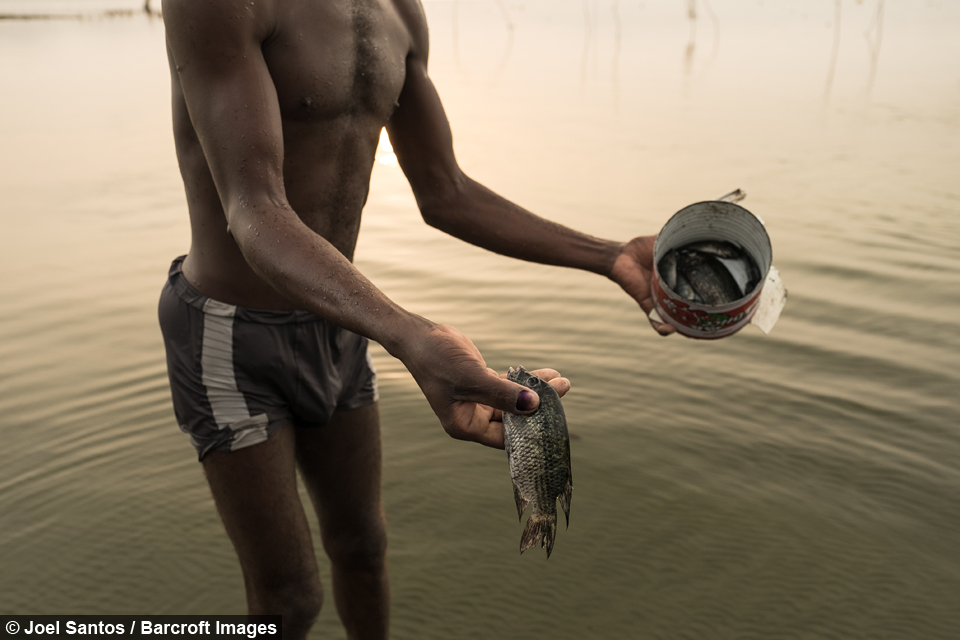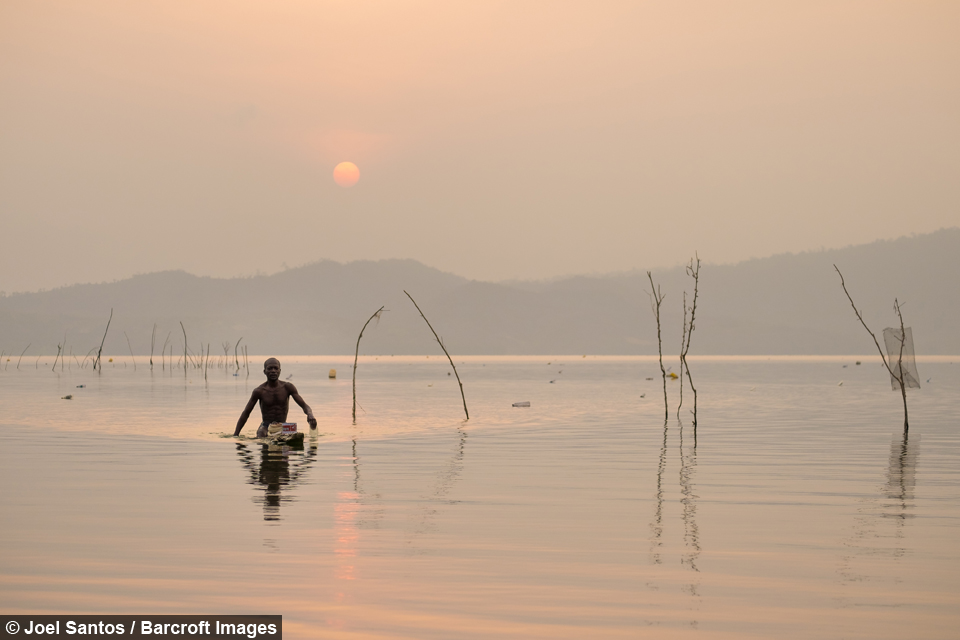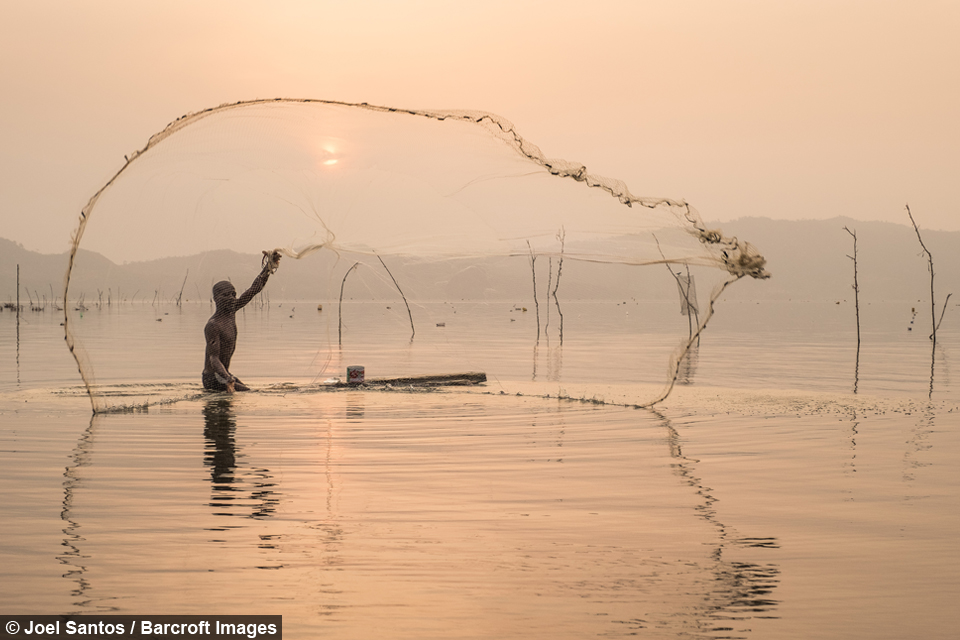Sacred Meteorite Lake: Explore the one million-year-old crater lake
By Hannah Stevens @Hannahshewans
Scroll down for the full story
Videographer / director: Joel Santos
Producer: Hannah Stevens, Ellie Winstanley
Editor: Sonia Estal
In Ashanti, Ghana, Lake Bosumtwi is revered by locals as sacred, and tradition dictates that they can only fish in the lake using wooden planks called paduas.
Nowadays the lake - which stretches across 10.5 kilometres - is under threat from deforestation and modernisation.
Travel photographer Joel Santos travelled to the Ashanti area to capture the vast expanse of water after documenting a nearby orphanage at Lake Volta.
He said: “There’s a lot of behaviours and procedures inherent to Ashanti living that truly show a clear veneration and respect to the lake, which they still regard as sacred.
“Lake Bosumtwi became the main source of living to the Ashanti people, since it provides the fish that are the cornerstone to their sustainability, not only as food, but also as a source of revenue.
“This dependence grew so strong that, as the Ashanti’s are pagan people, they started to see the lake as divinity, which should be treated with utmost respect.
“They only fish using the same traditional methods as their ancestors, which means using a quite unsafe and unstable flat wooden plank as a fishing boat.
“They believe that navigating with a metal vessel would hurt their divinity and bring a bad omen to their fishing success.”
When fish are scarce locals sacrifice animals at the spiritual centre of the lake - the Abrodwum Stone.
However, due to a rising population in the area - approximately 70,000 people occupy the surrounding villages - overfishing has severely depleted their food source.
The Portuguese photographer added: “Although the Ashanti treat the lake respectfully, the uniqueness of this location drew more people to its surroundings over time and soon after the wooden houses were replaced by brick walls.
“Deforestation began to provide wood for construction and to clear the path for even more houses, some of them oriented for touristic purposes.
“Of course, the less trees you have, less water is retained on the lake which, added to the shorter and scarcer rainy seasons, made the lake retreat several metres in the past few years.”
Recent drilling of the crater’s central uplift beneath the lake floor has provided shock materials for scientific study to determine the origin of the lake, but locals say it came at a great cost.
According to Joel, the Ashanti people believe that the diggings are directly responsible for the exponential decrease in the lake’s fish population.
After spending days gaining the villagers’ trust to allow him to take their photo - some Ashanti people consider it taboo - Joel was struck by the quiet beauty of the vast lake.
He said: “The contact with the fishermen and their culture was fantastic. It was great to learn how their beliefs actually benefit the harmonious balance between humans and nature, avoiding pollution, over fishing and providing a zen like feeling to this unique location.
“At the same time, it showed me how fragile that equilibrium is, as the economic and the rising touristic pressure is increasing and the first bad signs can be seen, like the presence of engine boats for transportation.
“It was beautiful to learn that there are still places in the world where the original balance still rules, but it is on the verge of being broken.”










